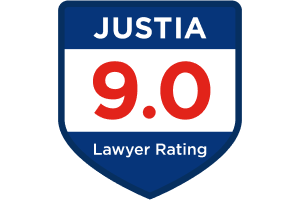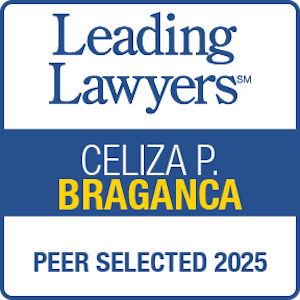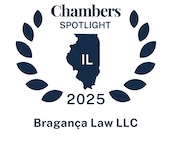- Free Strategy Session: (847) 906-3460 Tap Here to Call Us
New Risks for Whistleblowers

Bragança Law LLC | June 23, 2023

In May 2023, the Securities and Exchange Commission announced a record $279 million award to a whistleblower for providing “invaluable assistance” in a successful SEC enforcement action. Other than the fact that it was making the award, the SEC has not provided many details as to the circumstances surrounding this award. The SEC has only said the assistance involved multiple targets.1
The SEC uses these large awards as an incentive to encourage people to report potential misconduct through its whistleblower program. While this latest award dwarfs the previous largest whistleblower award ($114 million in October 2020), large awards are still quite uncommon.
There are significant reasons for potential whistleblowers to hesitate, however, before talking to the SEC. For a discussion of the potential pros and cons of becoming a whistleblower, and advice on how to find the proper attorney to help you navigate the process, see our recent post (/blog/what-should-a-potential-whistleblower-know-before-blowing-the-whistle/). In that post, we lay out the risks of becoming a whistleblower and the potential benefits.
The risks to current employees of becoming a whistleblower are substantial. If a current employee is not careful in reporting employer misconduct, they risk retaliation from their employer which can be financially ruinous. A recent case may increase that risk to current employees.
What is a whistleblower?
A whistleblower is an individual who exposes unlawful actions occurring in either the public or private sector by reporting them to the SEC or another government agency. A whistleblower can be a current employee, a former employee, or someone completely outside the company. What you need to have as a whistleblower is specific credible information about violations of the federal securities laws that is not publicly available. The tip has to be based on your independent knowledge or independent analysis. In some cases, the analysis of outside individuals has been so valuable to the SEC in identifying fraud that the SEC has awarded a whistleblower award, even though the analysis was of publicly-available information.
What are the potential challenges a whistleblower can face?
The Dodd-Frank Act of 2010 created the whistleblower award system, and provided that, depending on the relevant employee’s terms of employment, an employer could require that any claim of retaliation be decided in private arbitration, rather than a court of law. In those cases, an employee who thinks they were terminated or unfairly disciplined because of whistleblowing may have bring their retaliation claim via arbitration. Many employees in the financial services industry may be forced to bring retaliation claims in FINRA arbitration. In addition to the Dodd-Frank Act, the Sarbanes-Oxley Act of 2002 (”SOX”) also provides some protection for whistleblowers. Those SOX provisions may allow individuals to have their day in court even when they are subject to arbitration clauses.
Murray v. UBS, a case in the United States District Court for the Southern District of New York, presented just such a mixed result. Murray filed retaliation claims against his former employer in court. His employer, UBS, sought to have those claims heard in FINRA arbitration. The court reached a split decision. The court held that Murray’s Dodd-Frank claims had to be determined in arbitration, but it allowed Murray to pursue his separate SOX claims in court. This reveals how complex the law is concerning protections for whistleblowers.
The facts of Murray’s case are instructive. Murray was an independent analyst at UBS who reported efforts by his superiors to change the results of his reports to support UBS’s trading strategies. He essentially claimed that UBS was sacrificing the best interests of investors to benefit UBS’s clients. Murray had previously received stellar performance reviews, but internal UBS emails revealed that Murray’s superiors decided to either fire him or move him to a different department where his reports could be altered without violating any SEC regulations. At trial, UBS claimed that Murray was terminated as part of widespread layoffs based on the bank’s poor economic performance and not for his reports.
The district court in Murray instructed the jury that to find that UBS terminated Murray “because of” his whistleblowing, it need only conclude that the whistleblowing was a “contributing factor” in his dismissal. In that case, UBS would have the burden of disproving that its actions constituted retaliation. Indeed, this “burden-shifting” approach was settled law at the time. The jury sided with Murray, and the court ordered that UBS must pay $2.6 million in damages and attorney’s fees.
So what changed?
UBS appealed the jury verdict and the Second Circuit Court of Appeals reversed the judgment in favor of Murray. The Second Circuit rejected the settled law, and held that it is insufficient for an employee to merely demonstrate that their whistleblowing was a “contributing factor” to their employer’s actions. The Second Circuit held that an employee must also prove the negative, i.e., that there was no non-retaliatory motive for the employer’s actions. Murray appealed the reversal to the Supreme Court, and on May 1, 2023, the Court agreed to hear the case in its fall term.
Amicus briefs in support of Murray have been submitted by the consumer advocacy group Public Citizen and by the unlikely pair of Senators Grassley (R-Iowa) and Wyden (D-Oregon) of the Senate Whistleblower Protection Caucus. Both briefs highlight how the Second Circuit’s interpretation of SOX conflicts with the lower standard for proving retaliation that Congress intended to have apply when it enacted SOX. As the primary authors of the antiretaliation provisions of SOX, Senators Grassley and Wyden stated that the Second Circuit’s interpretation was not consistent with the purpose of SOX’s anti-retaliation provisions that lower the bar for employee-whistleblowers to prove retaliation.
How do you protect yourself?
Talking to an attorney experienced in dealing with the SEC or other regulatory agency BEFORE submitting a tip to the SEC is essential. For a potential whistleblower, this maximizes their options and ensures they can take full advantage of the antiretaliation protections of Dodd-Frank and SOX, particularly with the law currently in flux.
Your attorney should have substantial experience in securities law and representing whistleblowers. To maximize the chances of getting an award and not getting fired, whistleblowers should contact an attorney specializing in such claims before submitting any tips to the SEC or reporting suspected misconduct to their employer.
1 See https://www.sec.gov/rules/other/2023/34-97438.pdf. Although there has been some media speculation regarding the SEC investigation meriting this award, it will likely remain a mystery unless the whistleblower comes forward because the SEC scrupulously protects the anonymity of its whistleblowers.























